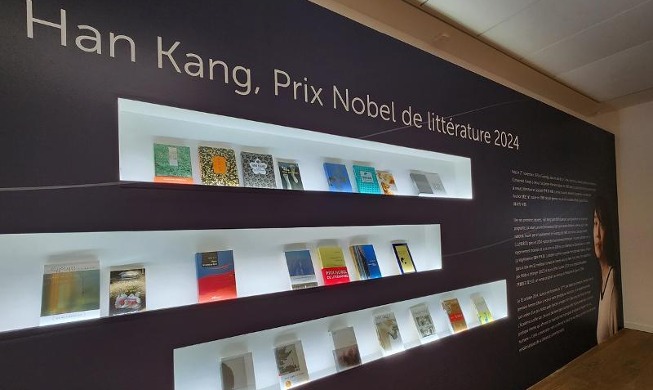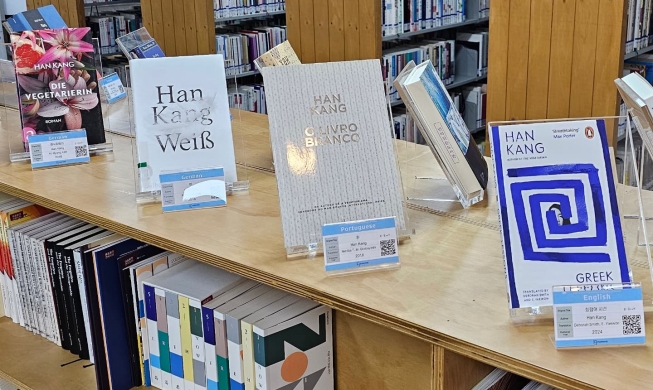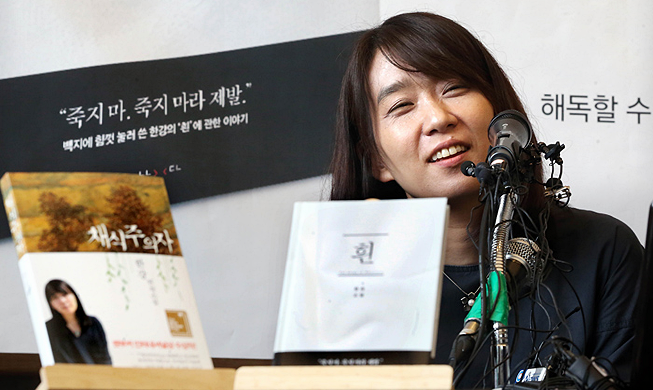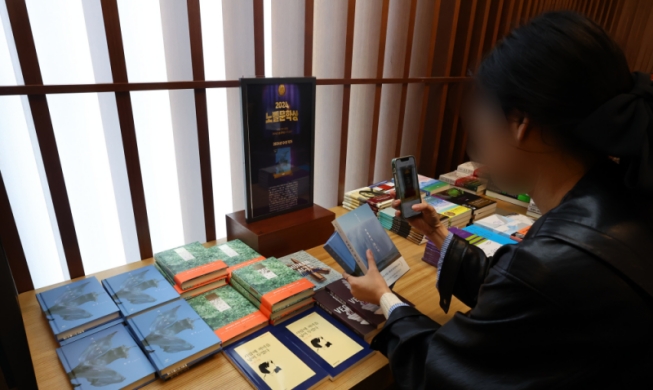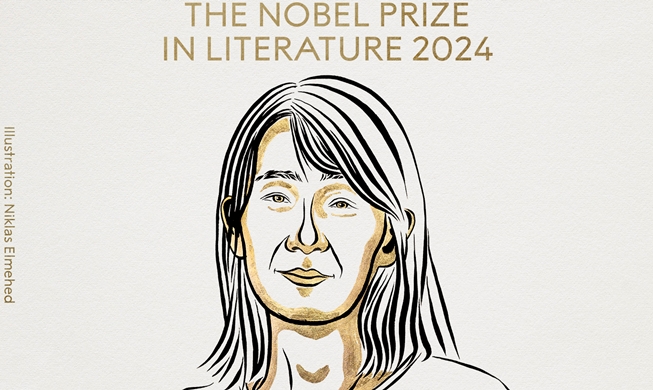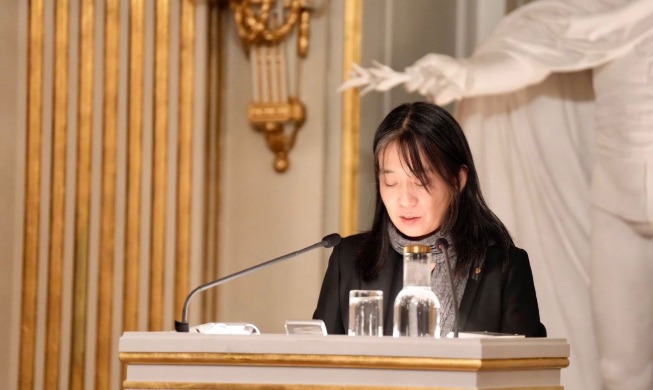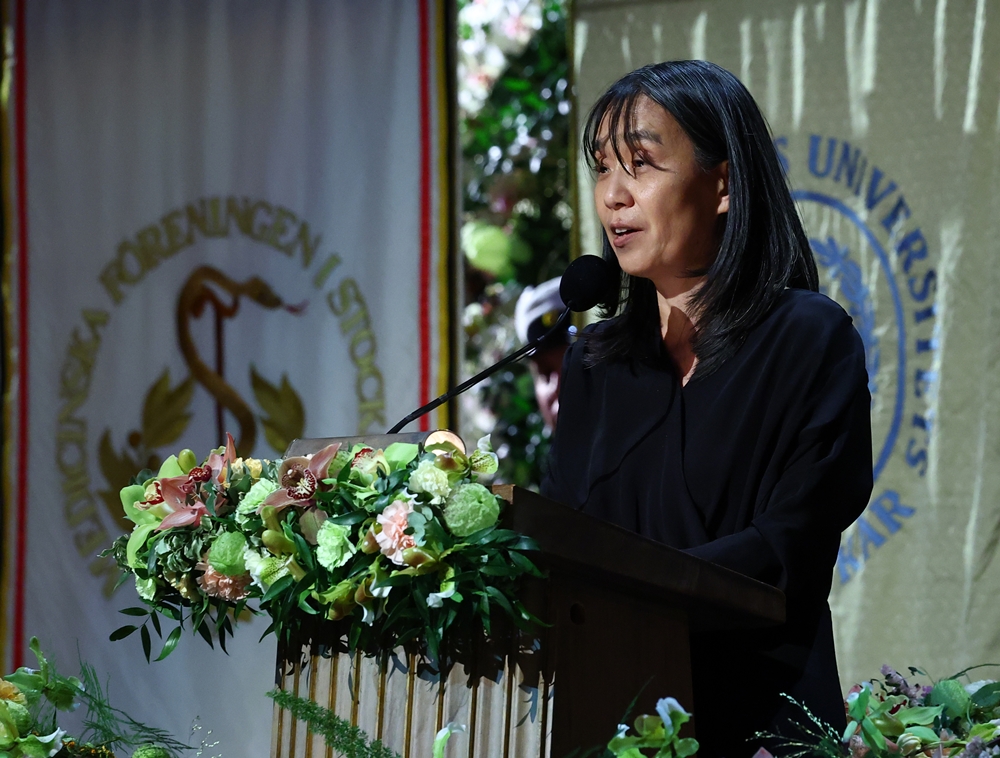
Author Han Kang on Dec. 10 delivers her acceptance speech at the Nobel Prize awards ceremony held at the Blue Hall of Stockholm City Hall in Sweden. (Yonhap News)
By Charles Audouin
Author Han Kang on Dec. 10 accepted her Nobel Prize in Literature in Stockholm, Sweden.
In her acceptance speech read in English, she said, "Just as inevitably, the work of reading and writing literature stands in opposition to all acts that destroy life."
At the Nobel Prize banquet that day at the Blue Hall of Stockholm City Hall in Sweden, she said, "In the darkest night, there is language that asks what we are made of, that insists on imagining into the first person perspectives of the people and living beings that inhabit this planet; language that connects us to one another."
"Literature that deals in this language inevitably holds a kind of body heat."
As the first Korean and Asian woman to receive the Nobel Prize in Literature, Han shared her childhood experience of empathy with others while avoiding sudden rain, comparing this to writing.
"This rain was so fierce that two dozen children wound up huddled under the eaves of the building," she said. "Across the street was a similar building, and under those eaves I could see another small crowd— almost like looking into a mirror."
"Each one was seeing this rain, just as I was. This damp on my face, they felt it as well. It was a moment of wonder, this experience of so many first-person perspectives."
"Looking back over the time I have spent reading and writing, I have re-lived this moment of wonder, again and again," she added. "Following the thread of language into the depths of another heart, an encounter with another interior. Taking my most vital, and most urgent questions, trusting them to that thread, and sending them out to other selves."
"Ever since I was a child, I have wanted to know," Han said. "The reason we are born. The reason suffering and love exist. What is the meaning of our brief stay in this world? How difficult is it for us to remain human, come what may?"
Before the banquet, Han received her Nobel Prize diploma and medal at the awards ceremony held at the Konserthuset (Concert Hall) of Stockholm.
caudouin@korea.kr
